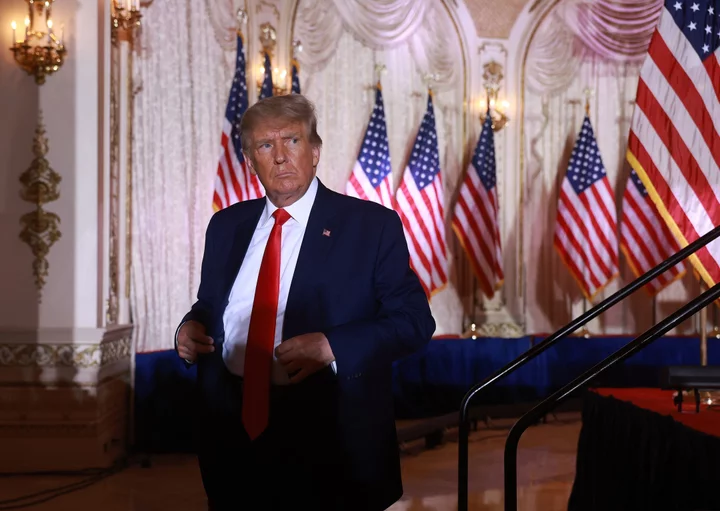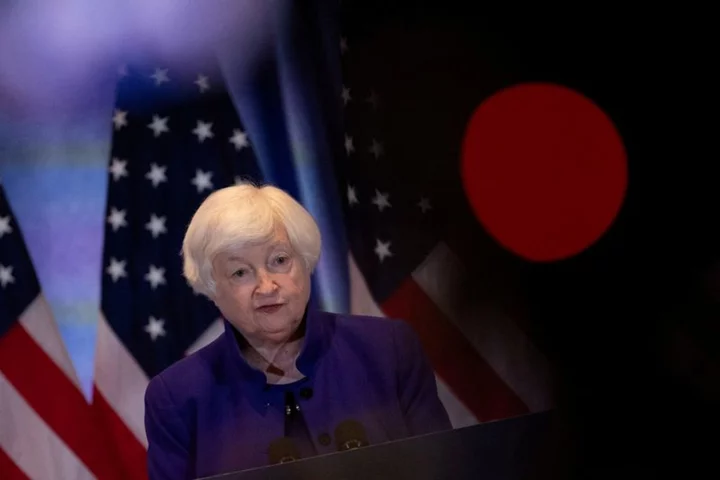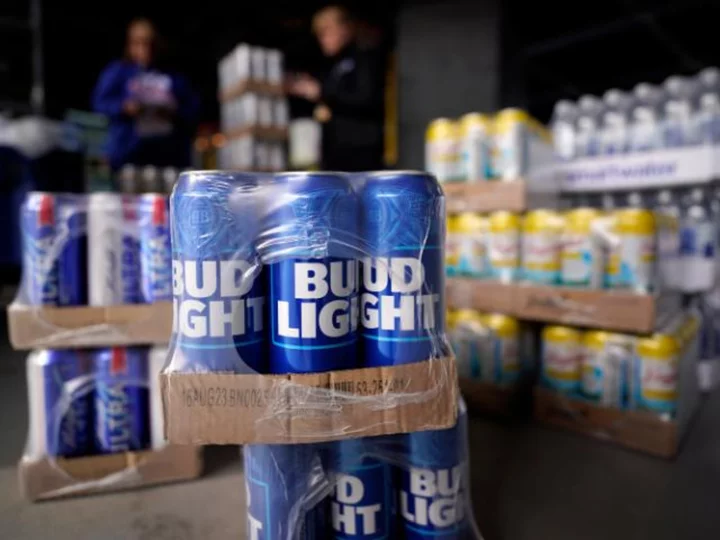A federal judge in Florida didn’t immediately set a trial date in the classified documents prosecution against Donald Trump, but expressed skepticism about arguments from both the government and the former president’s lawyers.
US District Judge Aileen Cannon, in a closely watched pre-trial hearing Tuesday, said she would issue an order after the hearing to address the first fight between prosecutors and Trump in the case. The government wants a trial in December; and the former president’s lawyers don’t want any date set for now.
Setting a schedule for the coming months — a relatively uncontroversial step in a typical trial — has major consequences for the former president as he ramps up his 2024 campaign with his legal risks mounting.
The trial date in Florida is only one of several legal obligations piling up on Trump’s schedule going into the 2024 presidential election cycle, which include cases involving his business, allegations of defamation and hush money payments to an adult film star years ago. Trump is also the target of other federal and state criminal investigations related to his efforts to overturn the results of the 2020 elections.
Cannon, in her first in-person appearance in the case since the June indictment, signaled some skepticism about arguments by Trump’s attorneys that his 2024 campaign schedule and the publicity and political climate surrounding his latest presidential run were grounds to delay setting a trial until after the election. She told Trump’s lawyers to focus their push for a longer timeline on the volume of evidence in the case, the complexity of issues related to classified material and the scope of pretrial arguments they want to raise.
That was a “more suitable” framework to guide her decision about how to craft a schedule, Cannon said.
But the judge also suggested she had concerns about the government’s proposed December trial date, at one point asking lead prosecutor Jay Bratt if there were any previous cases involving classified information that unfolded “on such a compressed time table?” She said that she had to leave enough time to resolve all of the motions the defense might raise, even if the government believed the underlying case was straightforward.
Upcoming legal challenges for Trump include an October trial for his business on New York state fraud allegations, a Jan. 15 trial date on defamation allegations from writer E. Jean Carroll and a March trial date in New York over the hush money allegations during the 2016 campaign.
On Tuesday, Trump announced on social media that he’d received notice from the Justice Department that he is a target in the federal election probe, a sign that charges could be imminent.
In the Florida documents case, Cannon originally set an Aug. 14 trial date, but Special Counsel Jack Smith’s office as well as attorneys for Trump and his co-defendant and personal aide Waltine “Walt” Nauta had all agreed that was premature. Prosecutors proposed starting the trial on Dec. 11, saying that would allow time to resolve any issues related to the use of classified information in the case.
Trump and Nauta’s attorneys called the government’s plan “unrealistic.” They argued that the unprecedented legal issues involved, the large amount of evidence, the complexities of dealing with classified material and Trump’s 2024 presidential bid all weighed in favor of waiting to set a trial date.
Read More: Trump Seeks to Delay Documents Trial With Eye to 2024 Election
Trump signaled that he might advocate against any trial before the November 2024 election, a lengthy delay that the Justice Department is likely to oppose. Trump’s attorneys argued that “there is simply no question any trial of this action during the pendency of a presidential election will impact both the outcome of that election and, importantly, the ability of the defendants to obtain a fair trial.”
In asking for the December trial, prosecutors had disputed that the case involves novel issues and said that aside from questions related to classified information, the government’s case presents “straightforward theories of liability.” They strongly objected to Trump’s proposal to indefinitely delay setting a trial.
(Updates with additional comments from the pre-trial hearing.)









